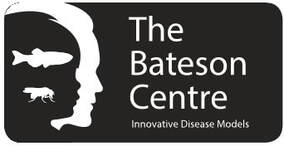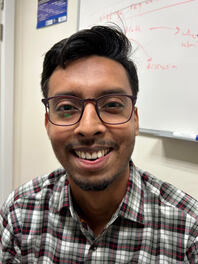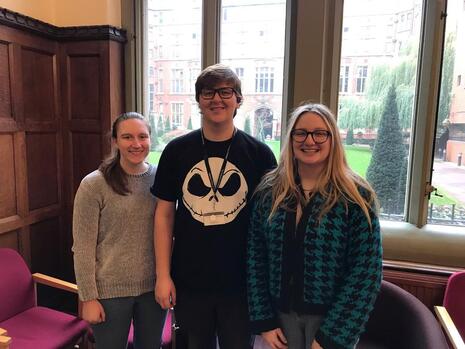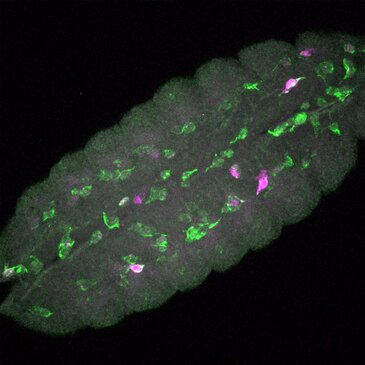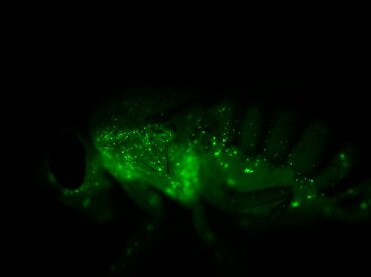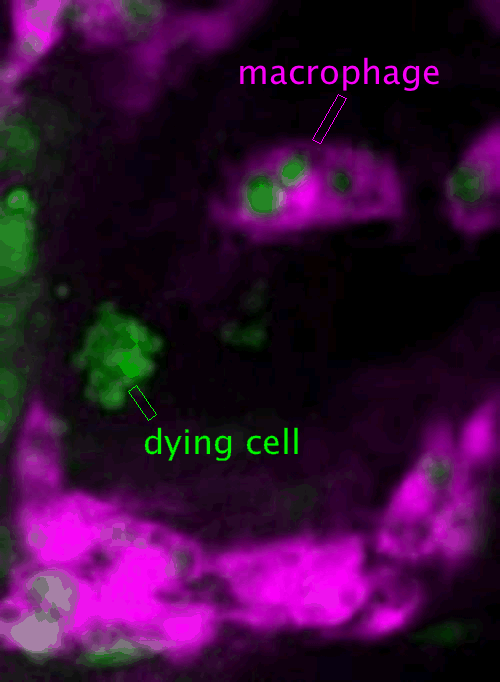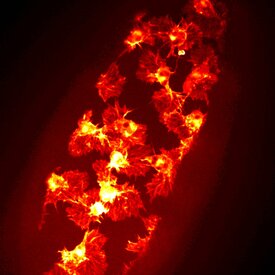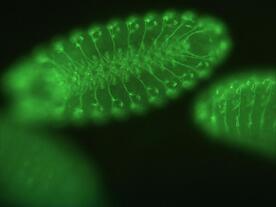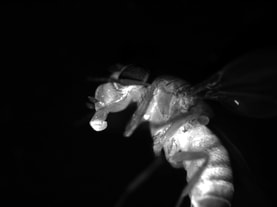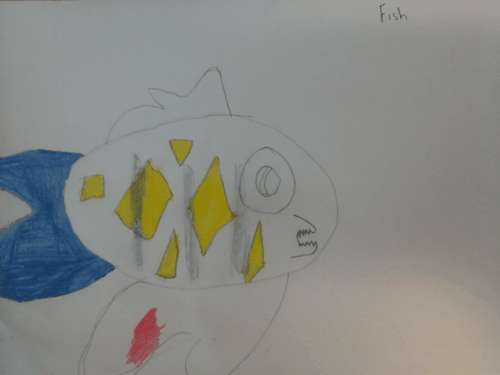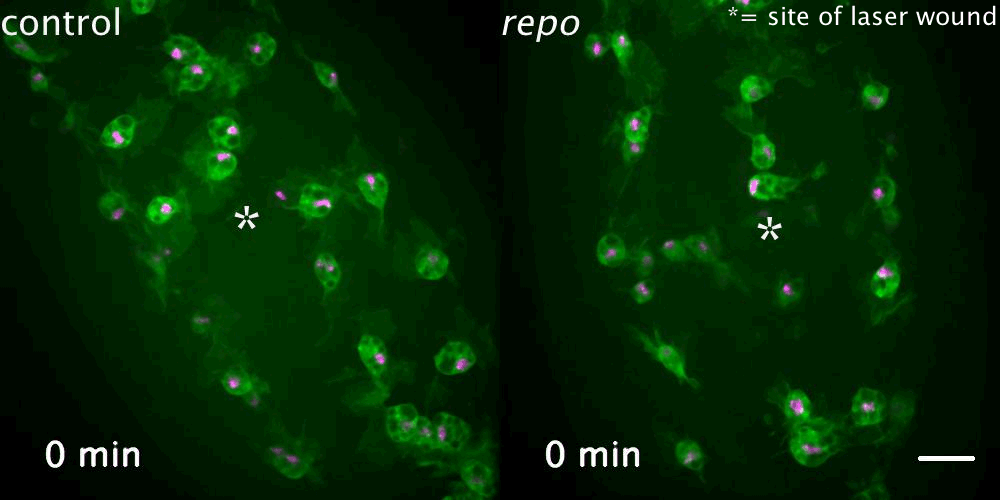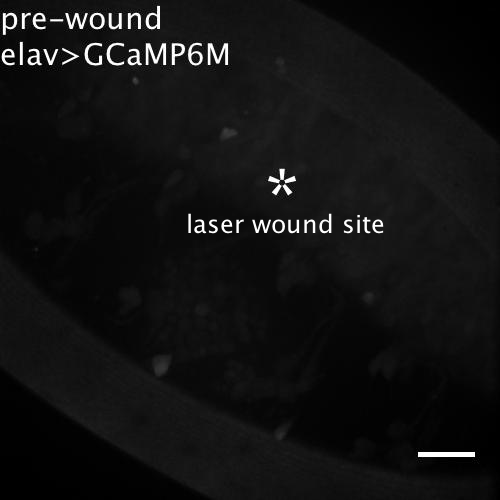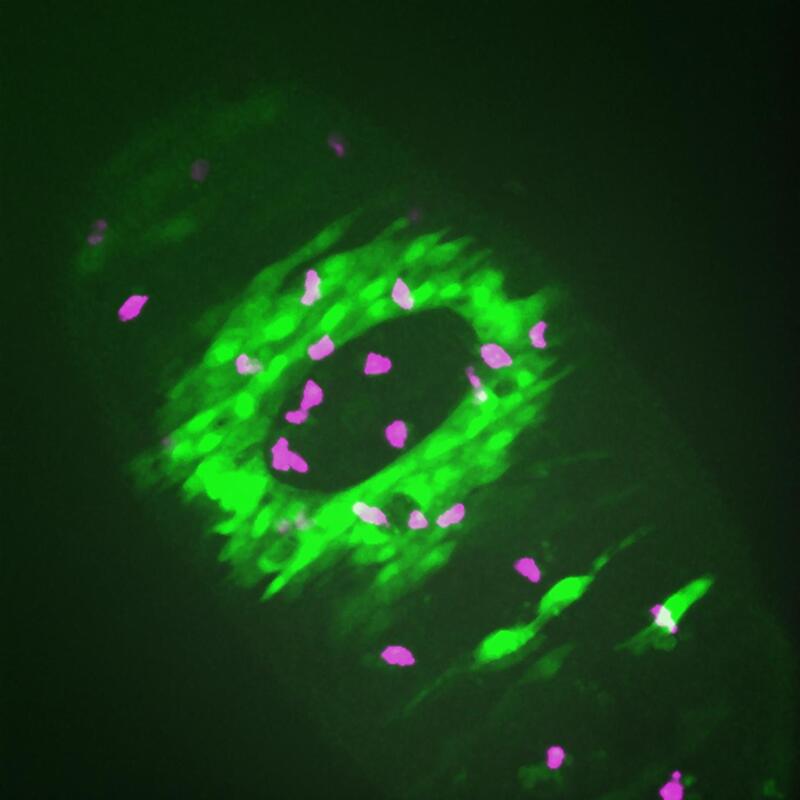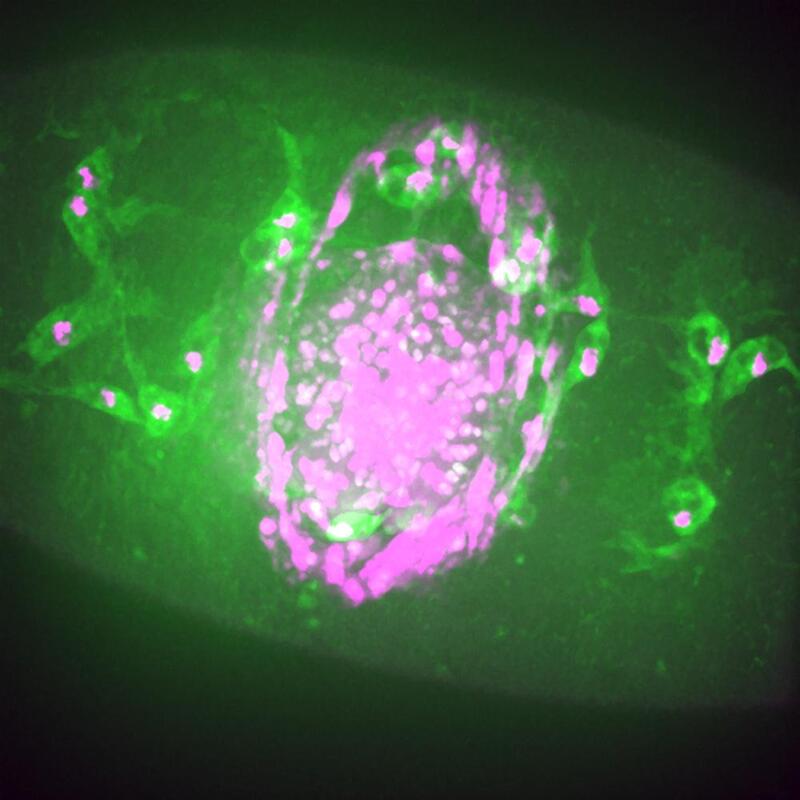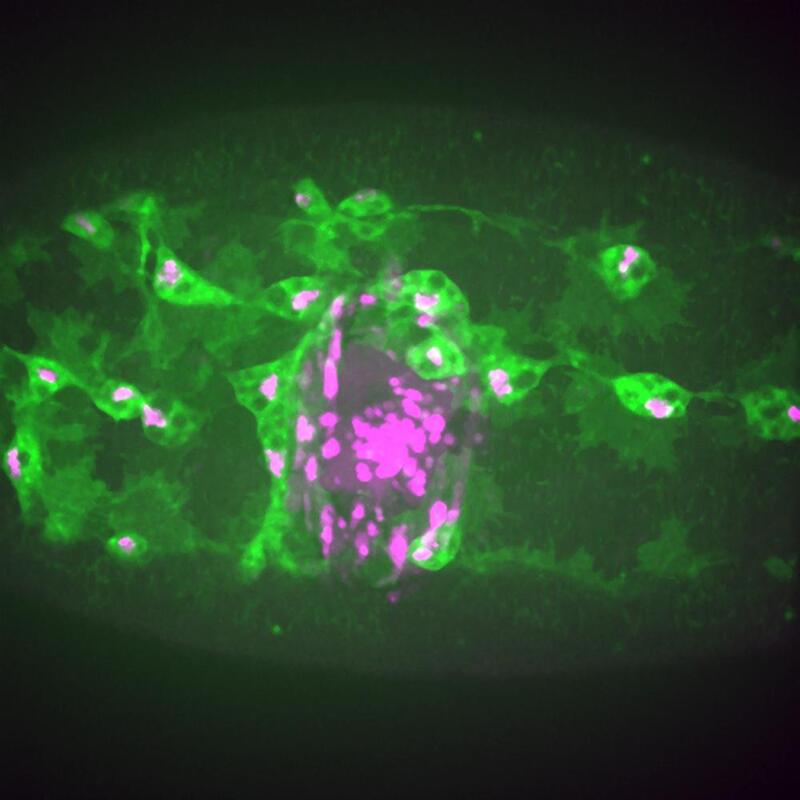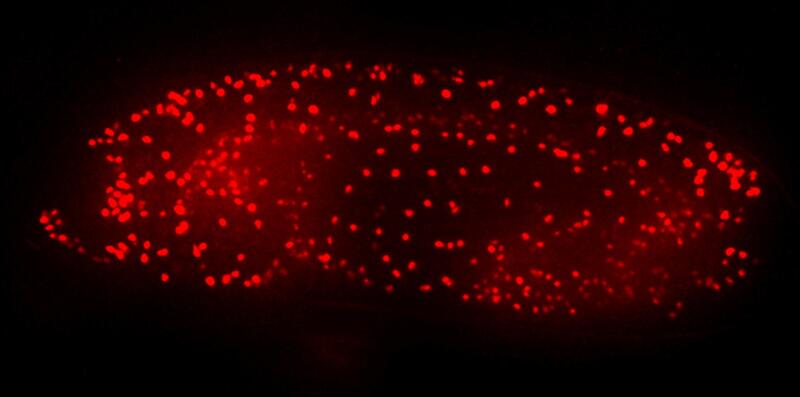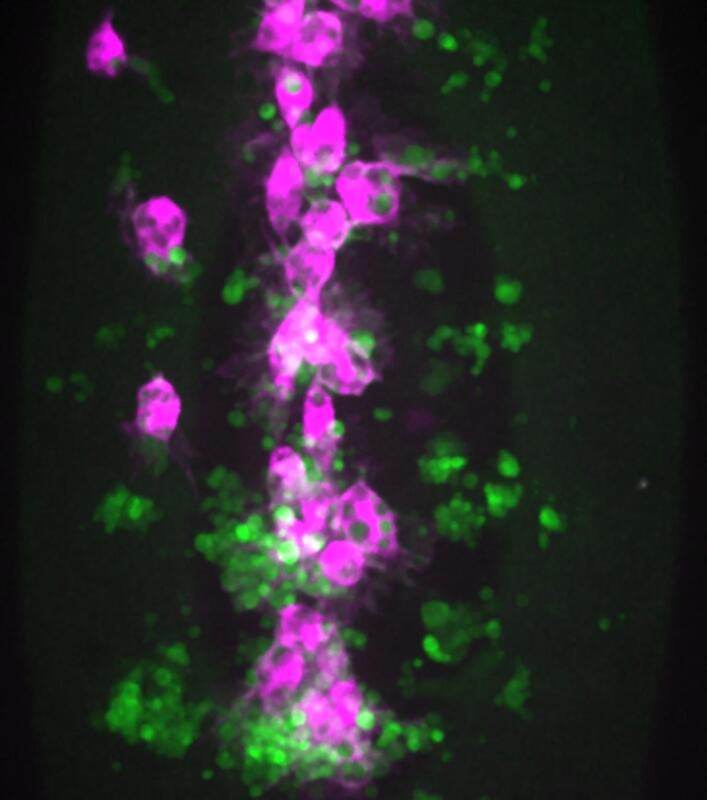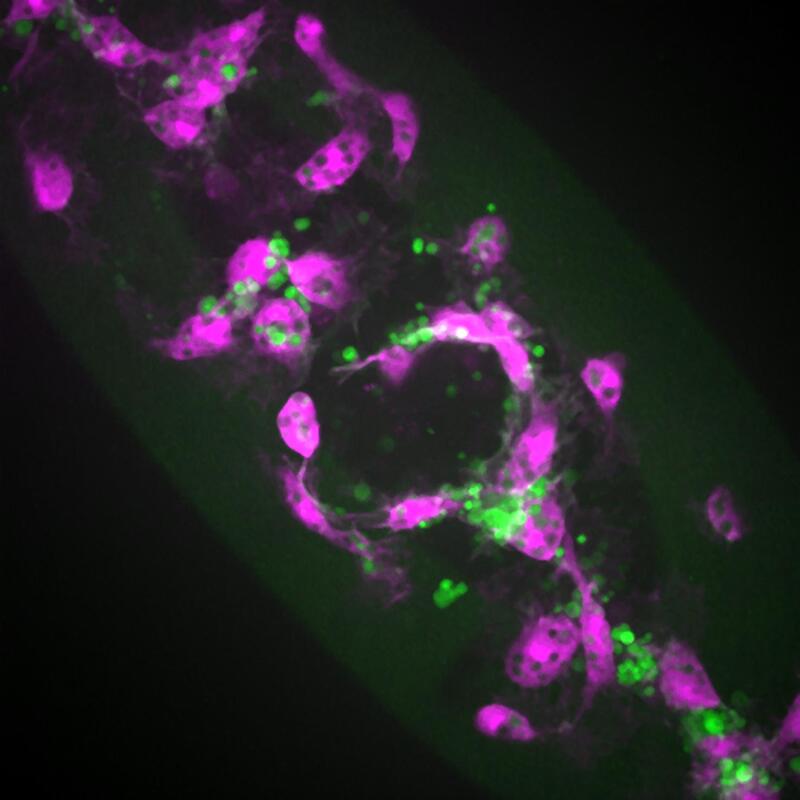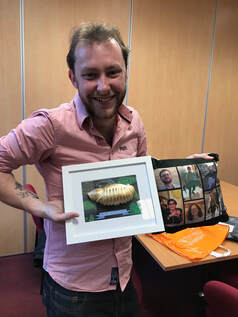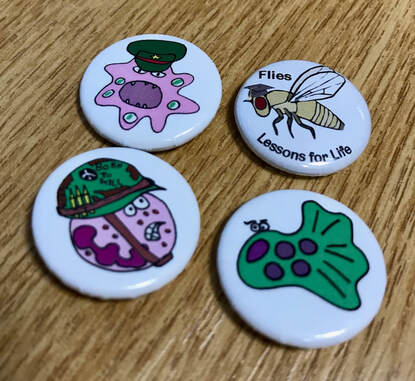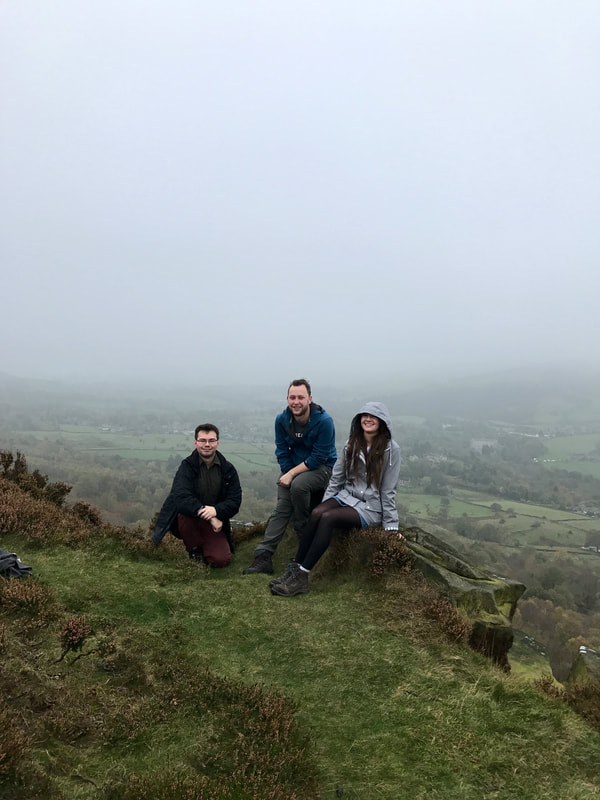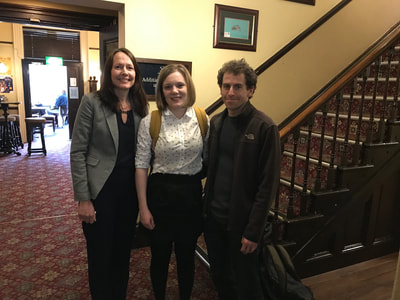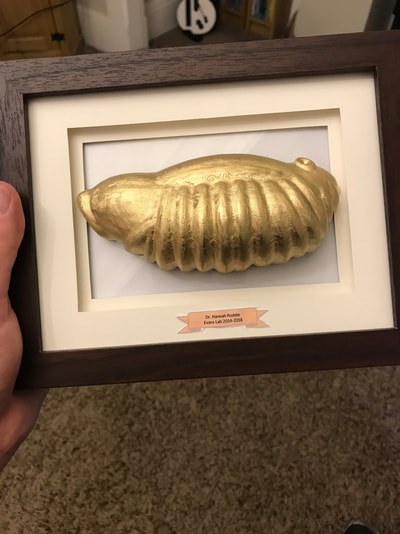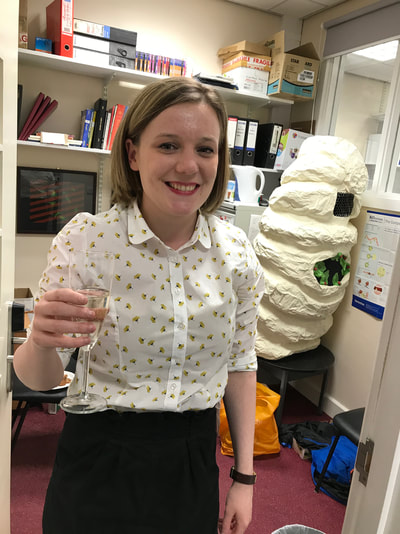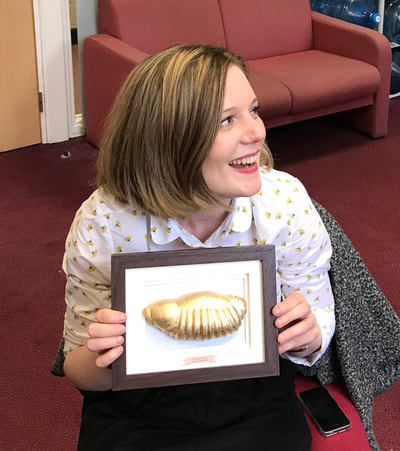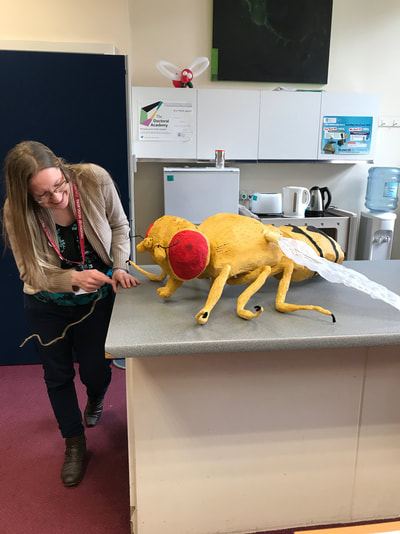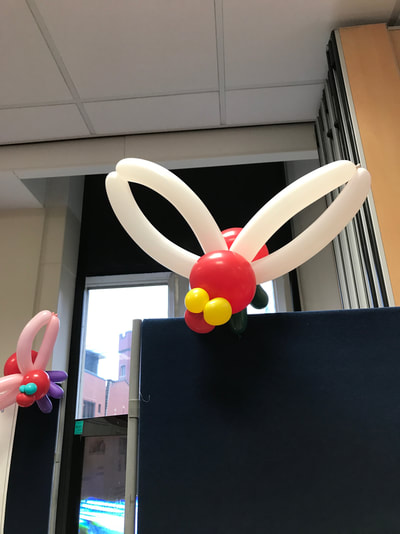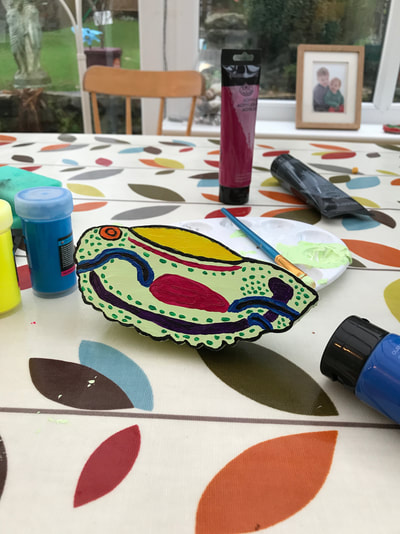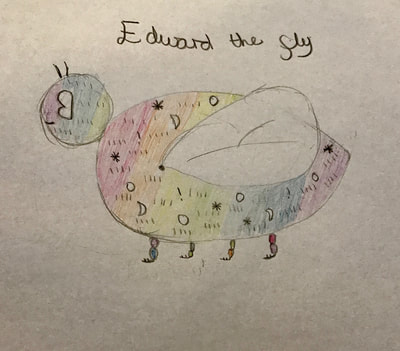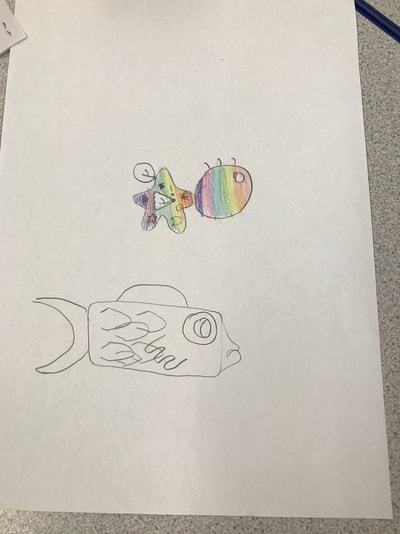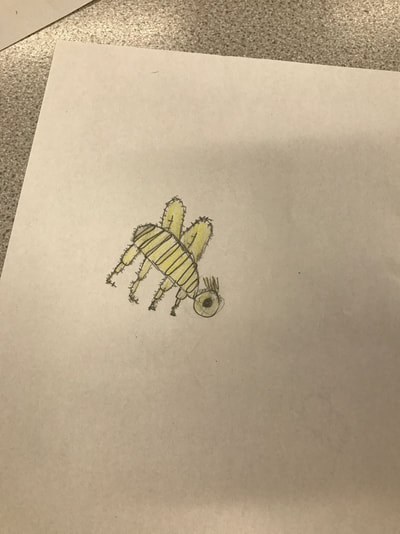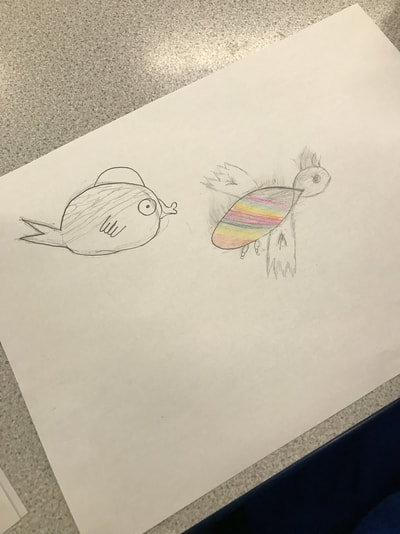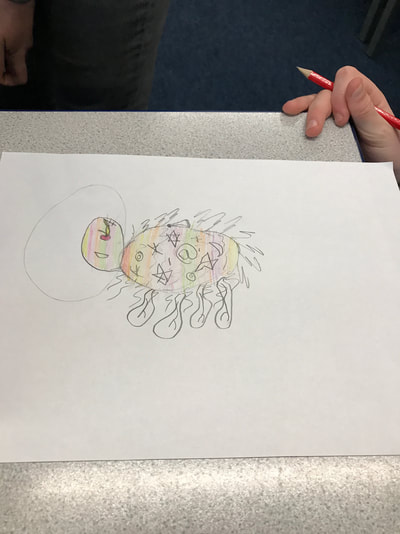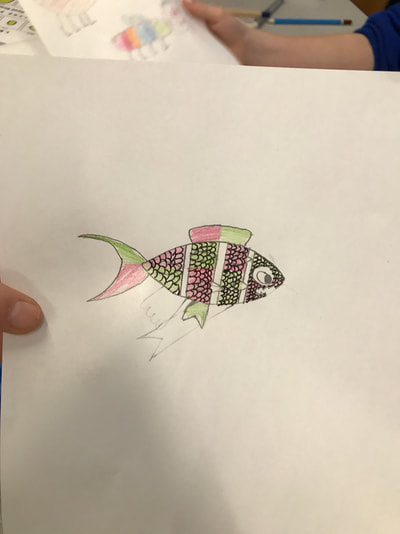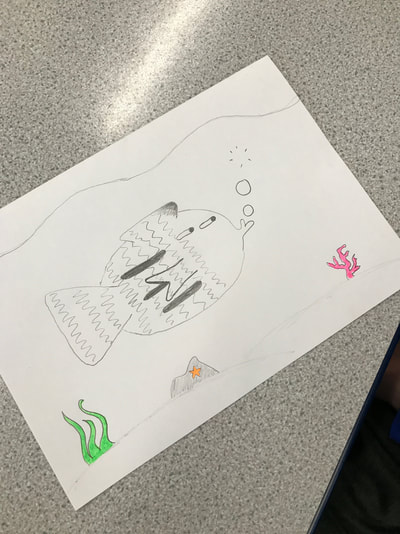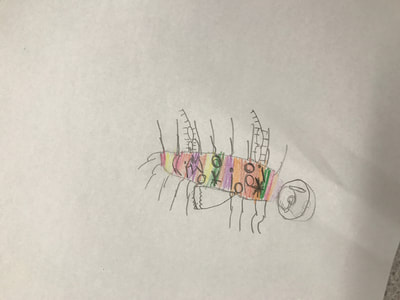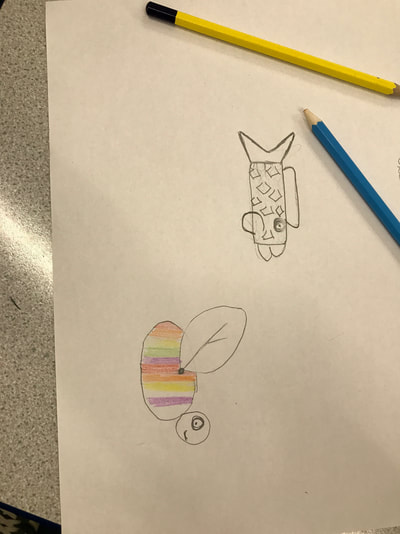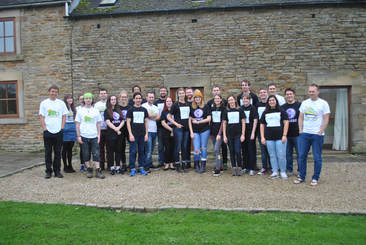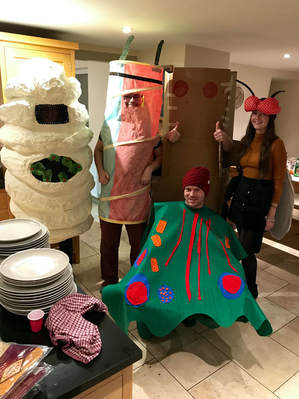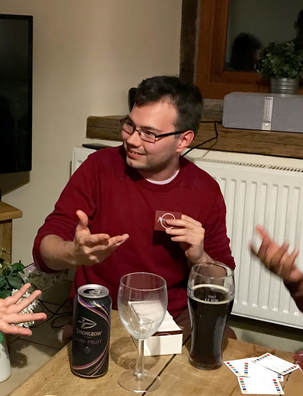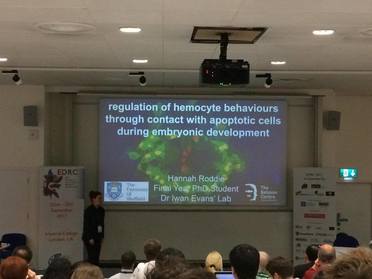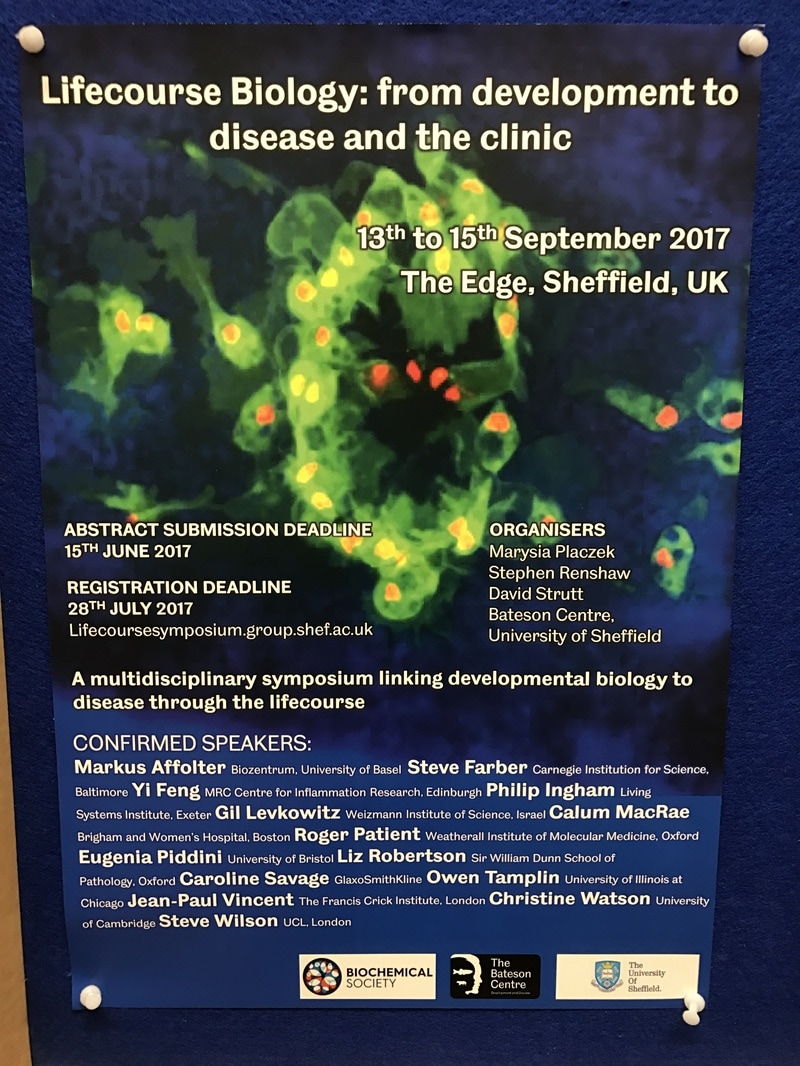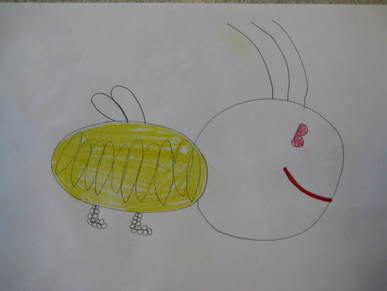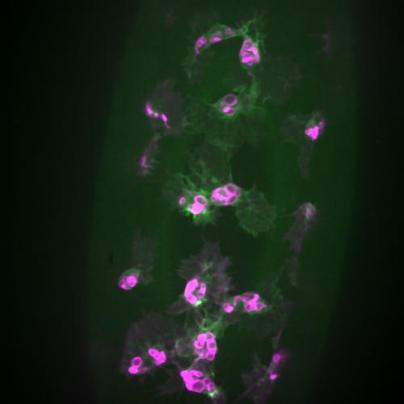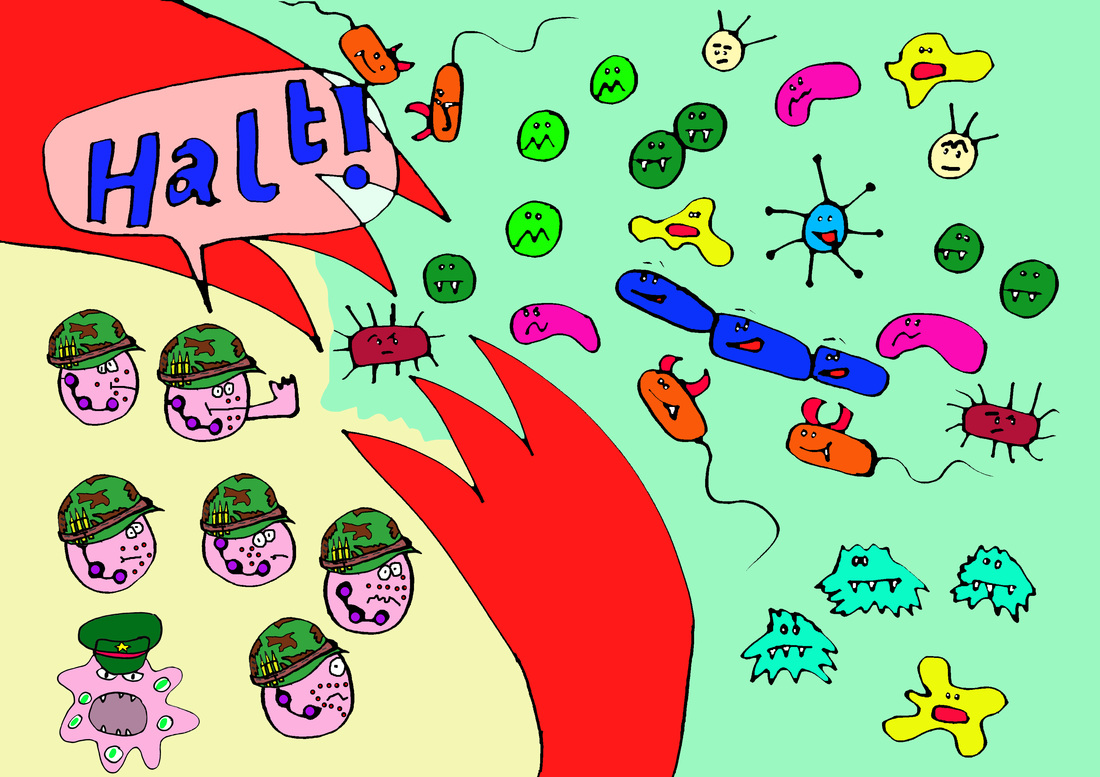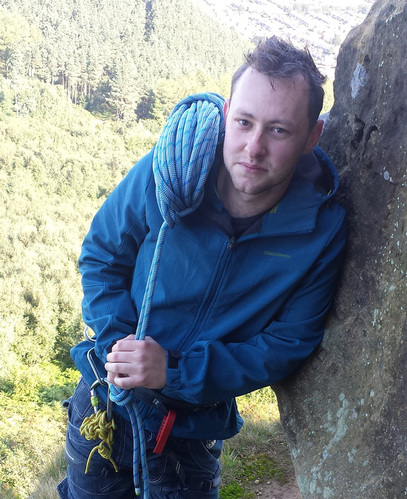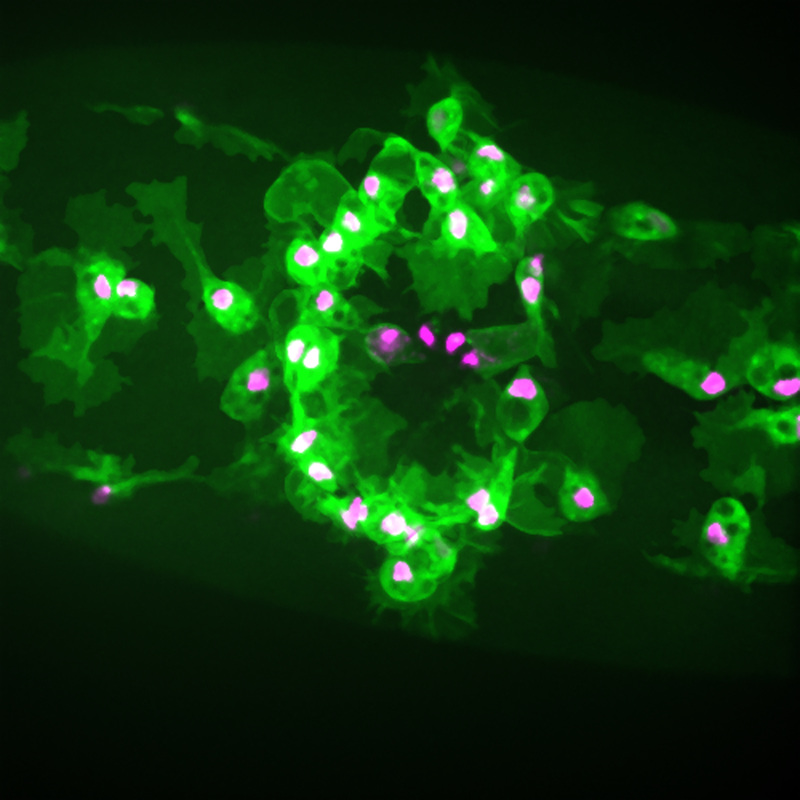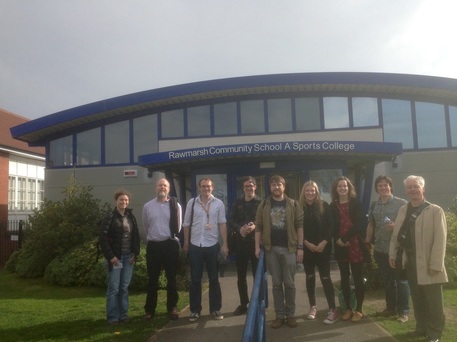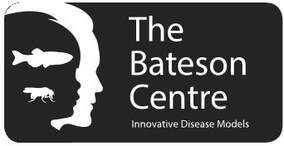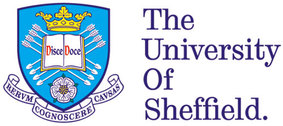|
Welcome to our website!
We are interested in the regulation of immune cell behaviour and cell migration, particularly in contexts relevant to human disease. We are also fascinated by how immune cell function is controlled during development of an organism, which encompasses processes that continue to occur throughout an organism's life. Since we are geneticists and want to work with a genetically tractable organism that allows us to visualise cell behaviour dynamically, in a live organism, we predominantly work with fruit flies. Have a look around our website to see who we are and what we get up to! |
NEWS
PhD studentships available for Oct 2024!
See recruitment page for more information. Findaphd.com links:
Should I stay or should I go now? Programming immune cell retention versus resolution at sites of tissue damage
2nd supervisors: Phil Elks, Simon Johnston
Old age macrophages? Programming distinct immune behaviours across the lifecourse
2nd supervisors: Heather Wilson, Endre Kiss-Toth
Fully funded scholarships available to start in Oct 2024; application deadline is 26th June 2024. For those who do not fulfil the eligibility requirements these projects (and others) may also be available on a self-funded basis. Please get in contact for more information and to informally discuss these projects.
See recruitment page for more information. Findaphd.com links:
Should I stay or should I go now? Programming immune cell retention versus resolution at sites of tissue damage
2nd supervisors: Phil Elks, Simon Johnston
Old age macrophages? Programming distinct immune behaviours across the lifecourse
2nd supervisors: Heather Wilson, Endre Kiss-Toth
Fully funded scholarships available to start in Oct 2024; application deadline is 26th June 2024. For those who do not fulfil the eligibility requirements these projects (and others) may also be available on a self-funded basis. Please get in contact for more information and to informally discuss these projects.
|
Feb 2024 - Paper published!
Very happy that Elliot's paper has been published in Frontiers in Cell and Developmental Biology. Macrophage subpopulation identity in Drosophila is modulated by apoptotic cell clearance and related signalling pathways This work shows how specific macrophage subpopulation cells are specified by apoptotic cell clearance receptor signalling and steroid hormone signalling in the fly. Image to the right shows macrophages in the thorax of a developing pupa (pan macrophage marker in green, subpopulation cell marker in red). |
Sep 2023 - Pre-print now out in BioRxiv
Macrophage subpopulation identity in Drosophila is modulated by apoptotic cell clearance and related signalling pathways. Work from Elliot's PhD thesis, shared via BioRxiv!
See link to read the paper.
Macrophage subpopulation identity in Drosophila is modulated by apoptotic cell clearance and related signalling pathways. Work from Elliot's PhD thesis, shared via BioRxiv!
See link to read the paper.
Jan 2023 - Funding success!
Very excited to report we have been awarded a UKRI/BBSRC funded grant to study retention of macrophages at wounds. Watch this space as the grant includes a 3-year PDRA position!
Very excited to report we have been awarded a UKRI/BBSRC funded grant to study retention of macrophages at wounds. Watch this space as the grant includes a 3-year PDRA position!
Katie, Dan and Emma in the Krebs cafe in Firth Court
|
October 2022 - Welcome to the lab - Dan, Katie and Emma!
Lovely to welcome Dan Hayman, who is our new Research Assisstant working with Iwan and Mirre Simons on our Dunhill Medical Trust Seed Award Grant. Dan started in September but is pictured here with our 2 new students - Katie and Emma. Katie Roome will also be working with both Iwan and Mirre and is an MRC DiMeN DTP PhD student. Katie will be working on the roles of subpopulation macrophages in immunity and ageing. Emma Bristow is an MBB final year Masters student. Her project is looking at how macrophage fates are established in the developing pupa. |
Aug 2022 - Congratulations, Dr Brooks! PhD success!
Many congrats to Dr Elliot Brooks who has just successfully completed his PhD viva. We are grateful to Prof Endre Kiss-Toth and Dr Barry Denholm for acting as his examiners!
Many congrats to Dr Elliot Brooks who has just successfully completed his PhD viva. We are grateful to Prof Endre Kiss-Toth and Dr Barry Denholm for acting as his examiners!
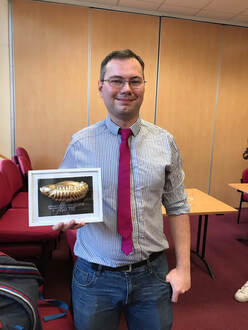
Dec 2021 - PhD success! Congratulations, Olivier!
Many congratulations to Dr Olivier Tardy - the latest recipient of the golden embryo. Olivier passed his viva on the 8th December and his examiners were Prof Steve Renshaw (Sheffield) and Dr Daimark Bennett (Liverpool). Thanks to them for stimulating discussion and taking the time to read Olivier's thesis. Olivier loves to chat science so I am sure it was an entertaining viva! Well done, Olivier!
Olivier was our first student on the MRC Discovery Medicine North (we have a new project via that scheme currently advertised). He really enjoyed being part of this cohort. I also really enjoyed supervising Olivier with his second supervisor, Dr Lynne Prince, hopefully we can extend this collaboration in the future! Read more about Olivier's thesis work here:
The Epidermal Growth Factor Ligand Spitz Modulates Macrophage Efferocytosis, Wound Responses and Migration Dynamics During Drosophila Embryogenesis
Many congratulations to Dr Olivier Tardy - the latest recipient of the golden embryo. Olivier passed his viva on the 8th December and his examiners were Prof Steve Renshaw (Sheffield) and Dr Daimark Bennett (Liverpool). Thanks to them for stimulating discussion and taking the time to read Olivier's thesis. Olivier loves to chat science so I am sure it was an entertaining viva! Well done, Olivier!
Olivier was our first student on the MRC Discovery Medicine North (we have a new project via that scheme currently advertised). He really enjoyed being part of this cohort. I also really enjoyed supervising Olivier with his second supervisor, Dr Lynne Prince, hopefully we can extend this collaboration in the future! Read more about Olivier's thesis work here:
The Epidermal Growth Factor Ligand Spitz Modulates Macrophage Efferocytosis, Wound Responses and Migration Dynamics During Drosophila Embryogenesis
Funding successes! PhD and RA positions to be available soon!
Mirre Simons (Biosciences, University of Sheffield) and Iwan have been awarded a Dunhill Medical Trust Seed Award to investigate the roles of different macrophage subpopulations in the fly, work following on from Iwan's recent eLife paper (Coates et al., 2021). A related project has also been selected as a PhD project for the DiMeN PhD programme. Please get in touch if you are interested in either position.
Mirre Simons (Biosciences, University of Sheffield) and Iwan have been awarded a Dunhill Medical Trust Seed Award to investigate the roles of different macrophage subpopulations in the fly, work following on from Iwan's recent eLife paper (Coates et al., 2021). A related project has also been selected as a PhD project for the DiMeN PhD programme. Please get in touch if you are interested in either position.
|
Paper now out! April 2021 Identification of functionally-distinct macrophage subpopulations So pleased to announce that this work has now been published in eLife, please check it out! Big congratulations to all the authors but also important to say how much help we had from a whole range of people in a project we have been excited about for a number of years now. Coronavirus made revisions rather tricky but we got it over the line in the end... What started out as an idea for an undergraduate project has blossomed into something we are very proud of. In this work we investigated how homogenous macrophages were in the fly embryo and found a number of enhancer-based reporters that labelled discrete numbers of macrophages in the embryo. What was then really critical was that we were able to show these different subpopulations of macrophages behaved differently to the rest of the macrophage population. This means fly macrophages are not all the same and perhaps are more like our own blood cells than previously anticipated. The numbers of subpopulation cells varies across the life cycle of the fly, suggesting a remarkable plasticity. We also found that exposure to apoptotic cell death can influence numbers in these subpopulations. |
|
Paper now out! March 2021
The Epidermal Growth Factor Ligand Spitz Modulates Macrophage Efferocytosis, Wound Responses and Migration Dynamics During Drosophila Embryogenesis Really happy to see this paper out in Frontiers. This work describes new roles for the EGF ligand Spitz in regulating macrophage behaviours in the fly embryo. An especially great effort given the restrictions Olivier was working under due to the pandemic. The project was a collaboration with Lynne Prince (also in IICD), with Olivier Tardy (the first author) funded via a Discovery Medicine North (Dimen) PhD position. Congrats to all the authors! |
Twitter feed for the lab (views my own and not just limited to science!)
New pre-print out on BioRXiv:
Identification of functionally-distinct macrophage subpopulations regulated by efferocytosis in Drosophila
We're really excited to share this new pre-print with you. This work identifies functionally-distinct macrophage subpopulations in the developing fly embryo. These subpopulations exhibit enhanced responses to injury, move faster and are less efficient at removing apoptotic cells. The subpopulations are highly plastic and disappear in larvae only to reappear in dramatic fashion during pupal stages. Fascinatingly they exhibit distinct localisation patterns in the adult and also disappear at different rates in adults. We've found that exposure to apoptotic cell death negatively regulates these populations, which is consistent with a skewing towards a more pro-inflammatory status (they are better at responding to wounds). Please check out our pre-print!
Identification of functionally-distinct macrophage subpopulations regulated by efferocytosis in Drosophila
We're really excited to share this new pre-print with you. This work identifies functionally-distinct macrophage subpopulations in the developing fly embryo. These subpopulations exhibit enhanced responses to injury, move faster and are less efficient at removing apoptotic cells. The subpopulations are highly plastic and disappear in larvae only to reappear in dramatic fashion during pupal stages. Fascinatingly they exhibit distinct localisation patterns in the adult and also disappear at different rates in adults. We've found that exposure to apoptotic cell death negatively regulates these populations, which is consistent with a skewing towards a more pro-inflammatory status (they are better at responding to wounds). Please check out our pre-print!
|
Science week, March 2020
We had an excellent day yesterday at St Wilfrid's and St John Fisher Primary School. Thanks to all the year 5 and 6 children who took part and their amazing teachers. We enjoyed telling them about our research using flies and fish here in the Bateson Centre. They were packed full of enthusiam and questions! We spoke to them about cells, tissues & organs, fish & flies, genes & genomes, genotype & phenotype - a lot to pack in! We ended each session by making our own mutant fish and flies - the gif to the right shows some of these! |
|
New pre-print out on BioRXiv:
Overexposure to apoptosis via disrupted glial specification perturbs Drosophila macrophage function and reveals roles of the CNS during injury (March 2020) Link This work shows how overexposing macrophages to apoptotic cell death in the developing fly embryo by preventing correct specificiation of glial cells (the other main phagocyte in the embryo) impairs macrophage function. Removing apoptosis from the mutant background used to stop glial specification (repo mutants) restores some macrophage functions (migration) but not others (wound responses after injury). In trying to understand why this might be our paper reveals that the calcium waves seen in the epithelium on injury actually normally spread into the developing central nervous system (consisting of glia and neurons). This changes our understanding of responses to injury that previously were thought confined to the epithelium in this system and suggests the CNS may play an active role in inflammatory responses after injury and repair processes. |
Left side shows normal macrophage responses to injury/right side shows defective recruitment in the absence of functional glial cells in a repo mutant
Calcium signalling in the CNS on injury imaged via a reporter (GCaMP6M) that shows calcium levels (expressed in neurons via elav-GAL4)
|
PhD position available for 2020:
Is less sometimes more? Balancing immunity, homeostasis and healthy ageing
This project is part of the excellent MRC Discovery Medicine North Doctoral Training Programme. The project is a collaboration with the Simons lab and will build upon exciting data from genome-wide association studies our lab and the Simons lab have carried out. It will address how blood cell numbers and populations alter during ageing and how the capacity of an organism to fight infection influences the health of that animal. The project will be advertised on Findaphd.com shortly and more details can be found on the recruitment section of this website. Closing date for applications is 6th Jan 2020.
Is less sometimes more? Balancing immunity, homeostasis and healthy ageing
This project is part of the excellent MRC Discovery Medicine North Doctoral Training Programme. The project is a collaboration with the Simons lab and will build upon exciting data from genome-wide association studies our lab and the Simons lab have carried out. It will address how blood cell numbers and populations alter during ageing and how the capacity of an organism to fight infection influences the health of that animal. The project will be advertised on Findaphd.com shortly and more details can be found on the recruitment section of this website. Closing date for applications is 6th Jan 2020.
|
New paper out!
Simu-dependent clearance of dying cells regulates macrophage function and inflammation resolution May 2019 We are hugely pleased to announce our new paper is out in PLOS Biology! See this link for a short description on the University website. The paper can be found here and is fully open access. |
Some images from our paper!
|
Our paper describes how excessive amounts of apoptotic cells distract macrophages from their normal activities, including their responses to wounds, how effectively they disperse over the developing embryo and how quickly they can move about. It also uncovers a role for apoptotic cells in regulating the early stages of macrophage developmental dispersal and how a cell surface receptor call Simu (or Six-microns-under) contributes to keeping macrophages at wound sites.
|
Congratulations, Dr. Coates!
March 2019 Congratulations to Jonny Coates who has successfully passed his viva! He is the 2nd PhD student alumni from the lab and has been awarded the prestigious golden embryo! He is now leaving us for the Babraham Institute in Cambridge to work on T cells and hypoxia in the Ross lab. Thanks to his examiners Dr. Simon Johnston (Sheffield) and Dr. Kim Mace (Manchester). I think Jonny enjoyed the experience, so they did a fantastic job! It was lovely to catch up with Kim who is someone I've always enjoyed tlaking to at conferences. |
|
Science week 2019
March 2019 Had a great day with Dr. Emily Noel visiting St John Fisher in Hackenthorpe and St Wilfrid's in Millhouses for science week. The kids were really engaged and asked some awesome questions. We covered the use of model organisms in biomedical research, cells-tissues-organs, genomes and genotype-phenotype. The children again played the genotype-phenotype bingo game to make their own mutant fish and flies and also got to see some zebrafish and flies. Our lab also took part in Discovery Night at the University, helping out with the flies for science exhibition! |
|
Lab retreat 2018
Oct 2018 A fun and productive day out in the Peaks with the Johnston, Elks and King labs on this year's JEEK retreat. Some great science talks, productive brainstorming and fun team-building activities. Great chance to meet all the new folk and get to know them too! Looking forwards to next year's retreat already! |
|
Congratulations, Dr. Roddie!
March 2018 Really pleased to announce that Hannah Roddie has passed her viva and (subject to minor corrections) will shortly be Dr. Roddie! Thanks to Lynne Prince and Brian Stramer who were her examiners. Hannah is our first student to pass through the lab and was awarded the golden Drosophila embryo in recognition of her efforts! We're so pleased for Hannah and she has already begun her postdoc with Paul Evans and Maria Fragiadaki over in the Medical School. |
Discovery Night, March 2018
Disco! Disco! Disco! We had a fab time teaching everyone about how you can use flies in biomedical research at Discovery Night. Thanks to everyone who cam and to all the helpers, especially to Jonny and Olivier from my lab who were showing everyone the fluorescent larvae in the fly/fish pod - it got very hot in there but they enthused loads and loads of future scientists!
Disco! Disco! Disco! We had a fab time teaching everyone about how you can use flies in biomedical research at Discovery Night. Thanks to everyone who cam and to all the helpers, especially to Jonny and Olivier from my lab who were showing everyone the fluorescent larvae in the fly/fish pod - it got very hot in there but they enthused loads and loads of future scientists!
Getting set up for Discovery night with Sam and a variety of fly friends!
|
Science week, March 2018
Dr Emily Noel and I visited St Wilfrid's and St Thomas of Canterbury primary schools this week as part of Science week. We had a great time telling the children about how we use fish and flies in biomedical research and we were asked some great questions. Really recommend other researchers taking time out to do this! The pictures to the right are some of the fish and flies the children concocted in the DNA bingo game. This teaches the children the relationship between DNA sequences and how we develop. I think the flies are best, though I suspect Dr Noel would disagree. |
|
Jeek Lab retreat, November 2017 We're all just back from the Jeek Retreat - see the news section for more details. We had a fun and enlightening 3 days with the Johnston, Elks and King Labs down near Buxton. Great for the new students to get to know each other and for everyone to learn about the cool science happening across our 4 labs. Welcome to the lab, Olivier! October 2017 Olivier has now joined the lab - Olivier is funded by the MRC Discovery Medicine North Doctoral Training Programme. He will also be working with the Prince Lab in the Medical School and the Bauer Lab at the University of Newcastle. He is a pioneer as he will be the first member of the lab to be working with human macrophages. Bateson Symposium, September 2017 Pleased to report that the Bateson Symposium was a great success. The selection of talks really showcased the work across the centre and displayed how by studying biology across the life course we can understand basic biological processes and then go on to apply that knowledge to develop new therapies. Congratulations, Hannah (again)! EDRC, September 2017 Hannah gave a great talk at the European Drosophila Research Conference in London. Despite some technical hitches (not her fault!) she gave a punchy talk in the Immunity workshop. Well done, Hannah! Congratulations, Hannah! GRC and GRS talks Really pleased to report that Hannah from the lab was selected to give a talk at both the Gordon Research Symposium and Gordon Research Conference on Phagocytes in the States. This is a really prestigious conference and my spies report back that she did a really great job. Lovely to see our grad students being selected for important conference talks! |
|
4/5/2017 Lifecourse Biology Symposium announced!
Register now! Join us in Sheffield this September for a fantastic line up of speakers. Register here. Also see the news blog for me details. PS that's one of our images on the poster on the right-hand-side. 27/4/2017 Well done, Jonny! Jonny won a poster prize at the 2nd year PhD symposium for the entire Faculty of Science. 21/3/2017 Fish and Flies for Science Week Visit the news section for some lovely images from our visit to St Wilfrid's Primary School for Science week with Dr Emily Noel! Please get in contact if you are a teacher and are interested in visiting us with your class at the University. 20/2/2017 New Student recruited! Pleased to announce that we will be joined by Olivier Tardy in October, who has been recruited via the MRC Dimen Scheme. Olivier will be working with our Lab, Lynne Prince in IICD and also Roman Bauer in Leeds. 24/11/2016 Emma wins Caroline Butcher Award See our news blog for more details of this nice accolade for our lab's research assistant, Emma Armitage. 19/5/2016 Paper Accepted! In Cell! We are very happy to reveal our lab has contributed to a paper in collaboration with Will Wood and Paul Martin at the University of Bristol, which has been published in the prestigious journal Cell! The paper describes how macrophages (hemocytes) in the developing fruit fly embryo need to eat dying cells in order to become responsive to wounds and be able to detect and phagocytose bacteria in vivo. Exposure to apoptotic cells causes calcium flashes within fly macrophages on engulfment of the dying cells and this in tern activates JNK signalling to drive up levels of a scavenger receptor called Draper within these macrophages. As Draper is required for both inflammatory migration to wounds and clearance of pathogens, macrophages that have never experienced apoptosis (such as macrophages in embryos that lack all apoptosis) fail to respond to wounds or infection properly. This work uncovers novel mechanisms that determine how immune cells develop a memory of their experiences and may become ‘primed’ to respond to subsequent challenges. This is the title of the paper: Corpse Engulfment Generates a Molecular Memory that Primes the Macrophage Inflammatory Response Helen Weavers, Iwan R. Evans, Paul Martin, Will Wood The article can be found here University of Bristol press release |
|
|
April 2016: Festival of life - Our Microscopic Army Against Disease
Researchers were on hand to describe our work that focuses on the cells that protect our bodies from microorganisms and injury. Here in Sheffield we use flies, fish and amoebae to study blood cell behaviour at the University of Sheffield. If you missed the army at the Festival of Life in April, our website contains much of the information that was on show: Our Microscopic Army Website |
More News
|
18/1/2016 Paper accepted! Congratulations to Juan-Pablo Couso's lab for their excellent paper that has just been accepted. We were lucky enough to be involved with this nice work: Hemotin, a regulator of phagocytosis encoded by a small ORF and conserved across metazoans. PLoS Biol. 2016. The Couso lab website 2/12/2015 Check out the Bateson Centre's new webpage: link 10/10/15 Welcome to the lab - another Jonny! We have a 2nd Jonny in the lab - Jonny Jackson is an undergraduate medic taking an SSC module. He'll be working in the lab with Hannah for the next 6 weeks, investigating phagosome maturation in hemocytes. 1/10/15 Welcome to the lab, Jonny! Jonny Coates has joined us as a PhD student from the University of Newcastle! He will be co-supervised by Martin Zeidler and will be looking at the roles of Jak/STAT signalling in early blood cells in Drosophila embryos. 14/7/2015 Early Career Researcher awards for Iwan and Phil Elks I've been lucky enough to be awarded an Early Career Rearcher award from the Faculty of Medicine, Dentistry and Health at the University of Sheffield. Fellow Bateson Centre member Phil Elks was also awarded one of these. Read about it on Lucy Lee's blog here. Lucy is the Researcher Development Manager in the Faculty of MDH (and an all-round good egg). 2/6/2015 Paper now online Read our new paper here: Draper/CED-1 mediates an ancient damage response to control inflammatory blood cell migration in vivo 16/4/2015 Paper accepted! Delighted to announce that we have had our work accepted for publication at the prestigious journal Current Biology! "Draper/CED-1 mediates an ancient damage response to control inflammatory blood cell migration in vivo" This work describes how Src42A>Draper>Shark signalling regulates macrophage migration to wounds in Drosophila embryos. This pathway is very similar to the Src family kinase>immune cell receptor>Syk signalling used by vertebrate immune cells and therefore this work suggests that our ability to discriminate between self/non-self may have evolved from an ancient pathway used to regulate activation of innate immune cells in response to damage. 15/4/2015 Virtual Science Had the opportunity to talk about our work as part of the Virtual Science project (organised by artist Paul Evans - no relation!) Thanks to Paul and Harriet Jackson (Cunliffe Lab, Sheffield) for organising the day. Close lab friend Phil Elks also took part. We each described our work in 3 mins to a tough audience of year 9 students at Rawmarsh School, Rotherham (previously featured on Jamie's School Dinners). |
|
Evans Lab, Dept. of Infection, Immunity and Cardiovascular Disease and the Bateson Centre, University of Sheffield
